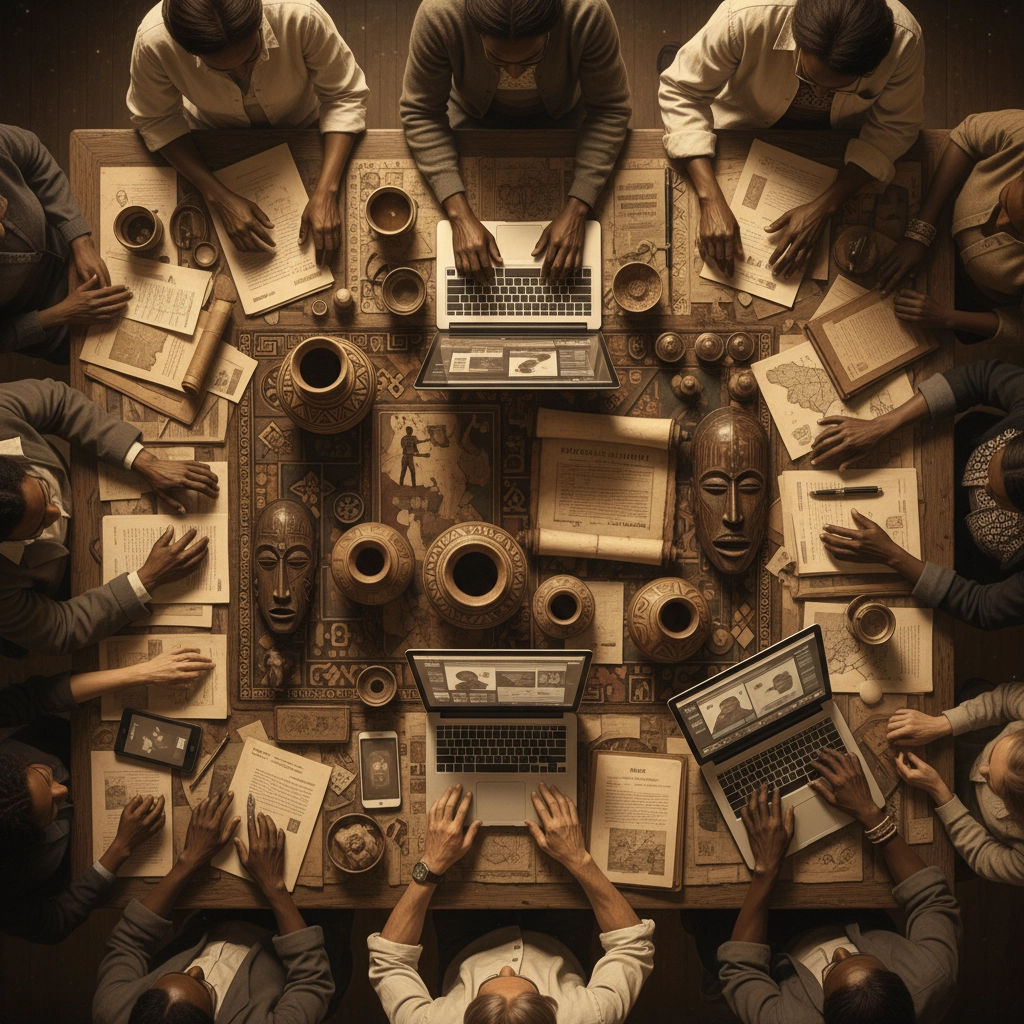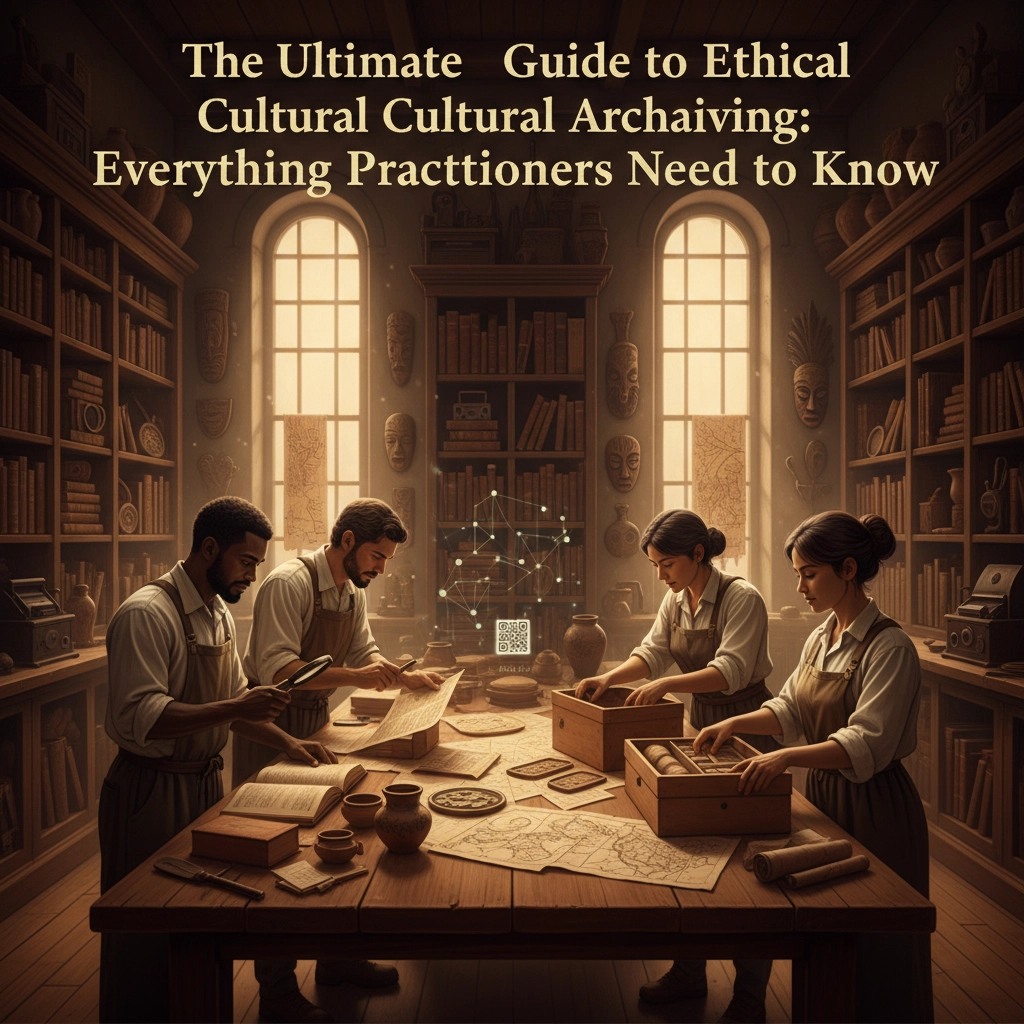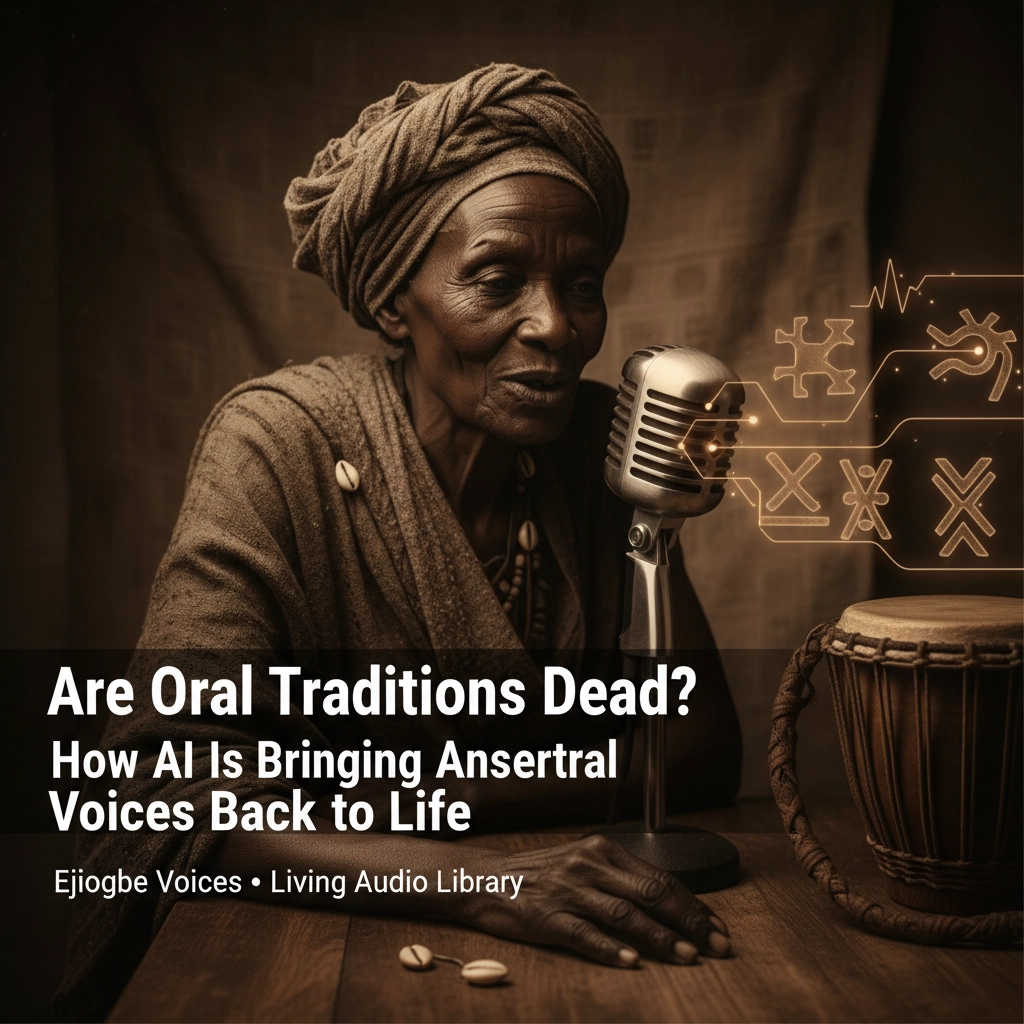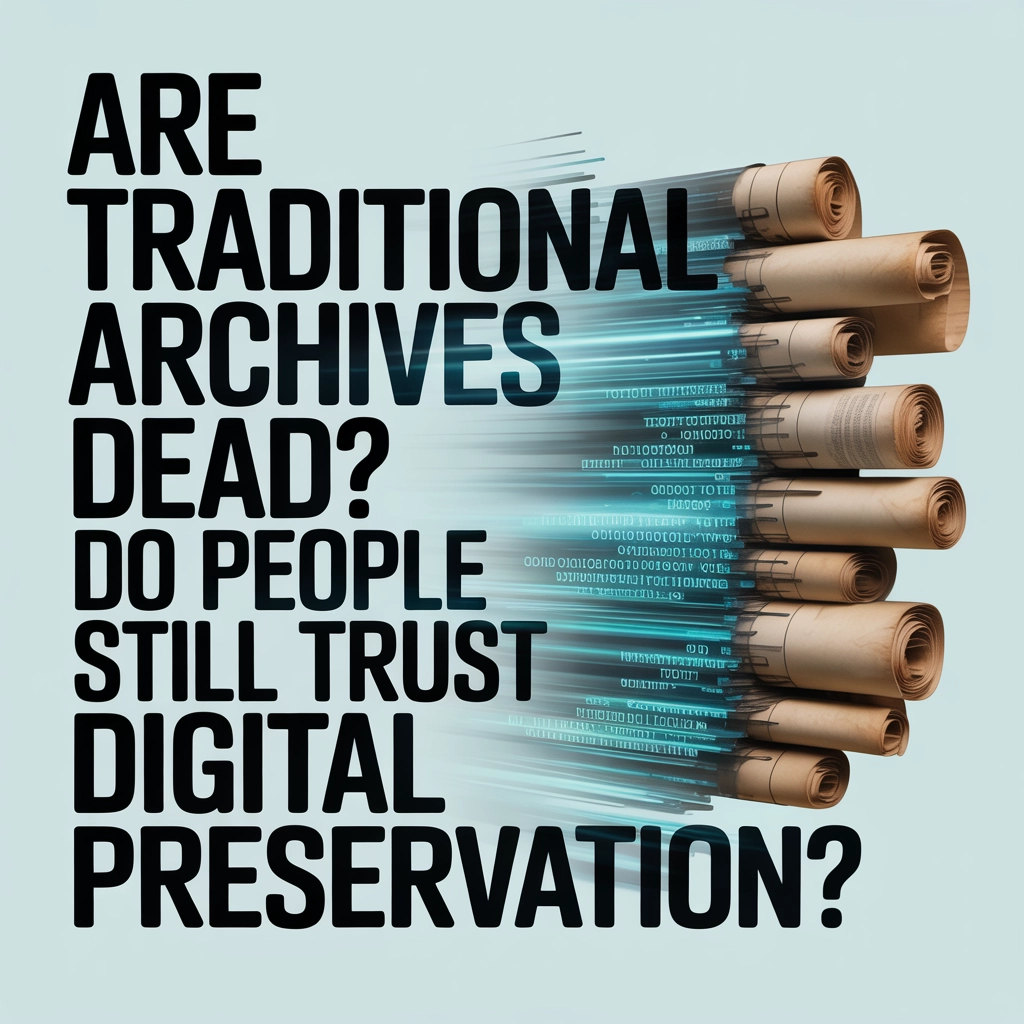Cultural archiving has evolved from simple collection and storage to a sacred responsibility: preserving the voices, wisdom, and heritage of communities while honoring their rights and sovereignty. Today's practitioners face complex ethical terrain that demands more than technical expertise; it requires cultural sensitivity, community partnership, and deep respect for the ancestral knowledge we're entrusted to safeguard.
This transformation represents a fundamental shift from extractive practices toward community-centered approaches that prioritize the needs and rights of source communities. As we navigate this landscape, our role as cultural stewards becomes both privilege and profound responsibility.
Foundation: Core Ethical Principles
Responsible Stewardship forms the philosophical heart of ethical archival practice. This principle guides every decision we make in safeguarding collective memory, encompassing ethical decision-making, responsiveness to community needs, development of culturally appropriate practices, and commitment to realistic capacity for care when acquiring materials.
As responsible stewards, we pledge to engage in transparent decision-making regarding the best possible care for materials entrusted to us. This means considering not just preservation needs, but the cultural protocols and spiritual significance of what we're protecting.
Transparency and Accountability build the trust essential for meaningful community partnerships. We must be open about our rationale: whether involving acquisition, preservation, or access decisions. This transparency creates accountability mechanisms that strengthen relationships with source communities and ensures our actions align with their values and expectations.
Authenticity and Integrity require us to maintain rigorous documentation of materials' provenance and any actions that might affect their authenticity. We never willfully alter, manipulate, or destroy records to conceal facts or distort evidence. Instead, we use appraisal and evidentiary documentation to provide transparent information about origins and authenticity.

Embracing Community-Centered Approaches
Post-Custodial Frameworks represent our evolution from traditional extractive practices toward collaborative stewardship. This approach describes changing power relations between institutions and source communities, aiming to repair past extractive practices that have disproportionately impacted Black, Indigenous, and People of Color cultural heritage.
Post-custodialism doesn't simply mean managing records for communities without taking physical possession: it means fundamentally shifting who holds decision-making power over cultural materials.
Community Archives and Ongoing Collaboration recognize that communities should maintain agency over their cultural materials throughout the entire archival lifecycle. We seek input from community members on everything from display and metadata creation to preservation priorities and access protocols.
This collaborative approach requires ongoing dialogue rather than one-time consultations. Communities remain active partners in determining how their heritage is preserved, described, and shared.
Cultural Protocols and Sovereignty become particularly crucial when working with Indigenous materials and traditional knowledge. The CARE data principles outline best practices for Indigenous-created data, emphasizing that open access isn't always appropriate. Instead, "Authority to Control" maintains Indigenous sovereignty over their own data and respects rights connected to materials and related communities.
Navigating Digital Heritage Considerations
Unique Digital Challenges require specialized ethical frameworks for digital assets. Digital materials present distinct preservation, access, and rights management challenges that demand careful consideration of cultural protocols in digital environments.
We must utilize robust frameworks to facilitate appropriate access in accordance with cultural expectations for sensitive material handling. This includes understanding how digitization might affect the spiritual or cultural significance of materials.

Technical Standards with Ethical Integration should follow established guidelines while incorporating cultural protocols. Technical excellence alone isn't sufficient: we must implement standards alongside community-defined protocols to ensure comprehensive ethical practice.
Balancing Access and Protection
Equitable Access Principles require us to promote the widest possible accessibility while respecting legal and ethical restrictions. We strive to minimize barriers and maximize ease of access, but always within culturally appropriate boundaries.
This means actively working to make materials available to community members who should have priority access, while also considering how broader access might serve educational and cultural preservation goals.
Security and Protection Responsibilities mandate comprehensive protection of all materials in our care. We guard records against accidental damage, vandalism, and theft while implementing security policies that protect materials in every format.
Protection extends beyond physical security to include cultural protection: ensuring materials aren't used in ways that violate community protocols or spiritual restrictions.
Restriction Management ensures that when repositories require restrictions to protect confidential or sacred information, such restrictions are appropriate, well-documented, and equitably enforced. We work with creators, donors, organizations, and communities to establish frameworks that respect cultural boundaries.

Ethical Decision-Making in Practice
Risk Assessment and Cultural Safety require understanding that information ethics aren't universal values but contextual ones. We must familiarize ourselves with best practices not only in our field but also relating to the cultural and historical context of materials and source communities.
This includes implementing cultural safety frameworks that have evolved within information and collection management sectors, recognizing that what feels safe to practitioners may not feel safe to community members.
Informed Consent and Ongoing Dialogue demand that we maintain space for appropriate engagement with rights owners throughout processing and access facilitation stages. This includes those who can speak for Indigenous Cultural and Intellectual Property and Traditional Knowledge.
Ethical practice represents an ongoing dialogue that evolves with community needs and professional understanding, not a static set of rules applied uniformly.
Implementation Framework for Practitioners
Policy Development requires establishing comprehensive ethical frameworks that address every stage of the archival process. These policies must incorporate community input and reflect ongoing dialogue with stakeholders about appropriate practices.
Effective policies acknowledge that different communities may have different protocols, and our frameworks must be flexible enough to accommodate this diversity while maintaining consistent ethical standards.
Staff Training and Capacity Building includes regular education on cultural protocols, ethical frameworks, and evolving best practices. Organizations must invest in professional development that enhances practitioners' ability to navigate complex ethical terrain.
This training should include direct learning from community members whenever possible, ensuring that our understanding comes from source communities rather than academic interpretations.

Continuous Assessment and Adaptation ensures that ethical practice evolves with changing community needs, professional standards, and technological capabilities. Regular review and revision of policies and practices maintains relevance and effectiveness.
We must create mechanisms for receiving community feedback and incorporating that feedback into our evolving practices.
Community Partnership Development requires building sustained relationships that extend beyond transactional interactions to encompass ongoing collaboration and shared decision-making authority.
True partnerships mean sharing not just consultation opportunities but actual decision-making power over how cultural materials are preserved, described, and accessed.
Moving Forward Together
The ethical cultural archiving landscape continues evolving as practitioners, communities, and professional organizations work together to develop more inclusive, responsive, and culturally appropriate practices. Success requires commitment to ongoing learning, genuine community engagement, and willingness to transform traditional archival approaches.
Our role as cultural stewards carries profound responsibility. We serve not just as preservationists but as bridges between past and future, ensuring that ancestral voices continue speaking to new generations while respecting the protocols and sovereignty of source communities.
At Ejiogbe Voices, we're committed to advancing these ethical practices through technology that empowers communities to maintain control over their cultural heritage while making it accessible to those who need to hear these ancestral voices.
The wisdom preserved in our archives belongs to the communities that created it. Our privilege is serving as its guardians, ensuring it flows forward with respect, authenticity, and cultural integrity intact.



